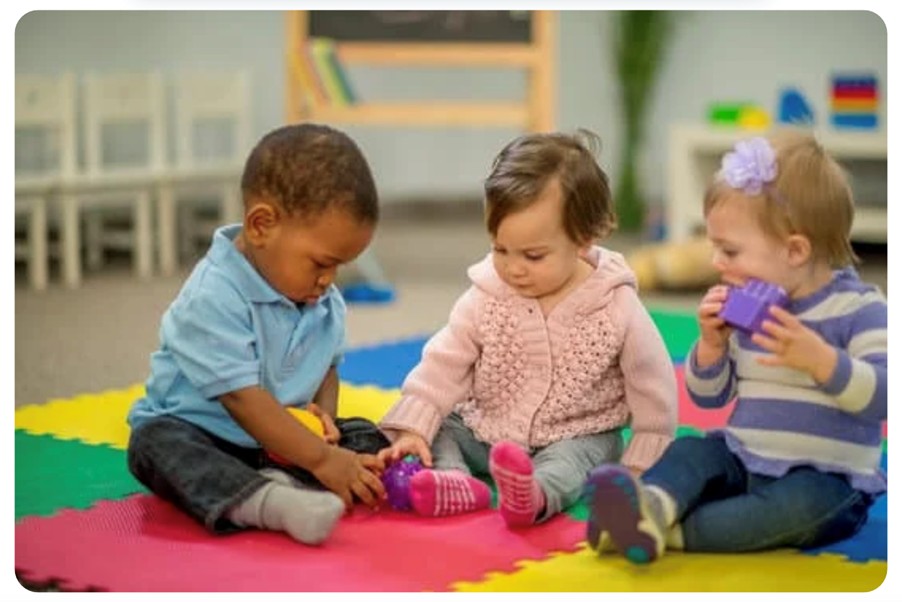There’s a shift in the rhythm and routines of EYFS Ofsted inspections in 2026 and beyond. The principles, however, remain exactly the same. Inspectors want to see real practice, meet the people who know the children best and understand how your setting helps them achieve, belong and thrive.
In this article, we explain when and how inspectors may speak to practitioners, parents, and children under the new guidance. Helping your nursery team to prepare so they feel informed and ready for a smooth nursery Ofsted inspection.
When do Ofsted speak to practitioners and parents in an inspection?
Ofsted inspectors are there to see what a normal day looks like for the children in your setting. They do not expect anything staged or extra. They simply want to understand your usual routines, relationships and practices, shaped by the needs of your community.
The new Ofsted early years framework puts far greater emphasis on context. Inspectors will consider the level of local deprivation, your community’s needs, and the children’s starting points.
The new evaluation area of inclusion highlights how important it is for inspectors to understand the experiences of children who are most likely to face barriers. This includes children who are disadvantaged, those in receipt of EYPP or DAF, children with SEND, children known or previously known to social care, and children who face wider barriers to their learning, wellbeing or development.
There is no fixed timetable for when inspectors speak to practitioners or parents. They will agree on a plan during the EYFS planning call, but this plan will adapt to the realities of the day.
The flow of the inspection depends on the first-hand evidence gathered during the visit, what leaders shared in the planning call, and any historical inspection information.
When Ofsted might speak to practitioners
It’s helpful to know what to expect before and during your Ofsted visit. As expected, inspectors may talk to practitioners during several Ofsted activities, often during:
- Learning walks with the nursery manager
- Case sampling, especially when focusing on children who are under their key worker responsibility
- Observing routines such as free play, outdoor learning or mealtimes
These conversations help inspectors understand how practitioners support learning, respond to children’s needs and put the EYFS into practice.
When the inspector may speak to parents
Inspectors may speak to parents at drop-off or pick-up, or by phone in smaller settings. These are brief, informal conversations designed to understand parents’ experiences of the nursery.
When inspectors might speak to children
Inspectors engage with children naturally through play, transitions, story time or outdoor activities. This helps them build a picture of what day-to-day life feels like for the children in your nursery.

Preparing practitioners for an Ofsted inspection
Practitioners sit at the heart of every inspection. They bring your EYFS curriculum to life, support children’s development and show how well your nursery meets the needs of all children.
Inspectors may speak with practitioners individually or in small groups. These conversations might explore:
- What children are learning and how activities link to the curriculum
- How practitioners assess progress and adapt learning
- How children with SEND or additional needs are supported
- How leaders support staff development and wellbeing
- How safeguarding is understood and acted on in daily practice
These are not formal interviews. Inspectors want practitioners to talk about their work, the children they know so well and the decisions they make each day.
The inspectors understand the pace of an early years environment and will make adjustments so staff can continue with normal duties.
Helping staff feel confident about Ofsted inspections
Practitioners don’t need to perform for Ofsted. They simply need to talk about the work they already do every day.
You can support practitioners to feel confident by:
- Give practitioners time to reflect: They should feel comfortable explaining what children are learning and how they support progress.
- Keep safeguarding clear in everyone’s mind: All staff should know who the DSL is and how to report a concern.
- Encourage real examples: Genuine, child-centred stories help inspectors understand your approach.
- Support wellbeing: Practitioners can pause, take a moment or ask to have a colleague with them if needed. You should expect the inspector to respond with sensitivity.
- Promote openness: It is acceptable to say “let me show you” rather than quoting policies word for word. Inspectors want to see true practice, not rehearsed lines.
When staff feel steady and informed, they can speak confidently about their work and the difference it makes for children.
Helpful refreshers for staff
It can be useful to give practitioners short refreshers on important topics that are common Ofsted discussion themes:
- Good digital media use in EYFS
- SEND early years tracking good practice
- The government’s Giving Every Child the Best Start strategy
- Tips for exceptional parent communication
- Teaching mutual respect in early years
- Prevent Duty in nurseries
- Activities for school readiness
- The 5 S’s of school readiness framework
- EYFS self-regulation and executive functioning science
- Emotional regulation strategies
- EYFS physical development
- EYFS Communication and Language
- The new EYFS framework
- Supporting SEND needs in EYFS
Supporting apprentices and trainees
If your nursery has childcare apprentices or trainees, inspectors may speak with them to understand how well they are supported. These conversations offer insight into your culture of mentoring and professional development.
Prepare apprentices to speak to Ofsted by helping them:
- Understand your curriculum and daily routines
- Explain the guidance and mentoring they receive
- Know who they can go to for help
This helps inspectors see how your team builds confidence and professional growth from the outset.

How to prepare parents for your nursery inspection
Parents’ experiences help inspectors build a wider picture of your nursery. Inspectors may speak to parents during drop-off or pick-up, or in some cases by phone. These discussions are informal and focus on parents’ genuine experiences.
Inspectors might ask parents about:
- How well they are kept informed about learning, routines and nursery life
- The quality of communication between home and nursery
- How children with SEND, those who are disadvantaged or those known to social care are supported
- How the nursery helps children learn to keep themselves safe and healthy
- Whether their child feels happy, secure and included
If a parent raises a concern, inspectors may follow it up with leaders and record their response. Ofsted guidance states that confidentiality should be protected wherever possible.
Helping parents feel prepared
Parents feel most confident when they already have a clear picture of what happens in your nursery.
Keeping effective parent communication open throughout the year means an inspection never feels like a sudden spotlight but simply another moment to talk about their child’s experience.
Share regular child updates so parents feel informed and able to speak about their child’s learning and daily routines.
Let families know when an inspection is taking place, as this is part of your statutory duty.
Encourage your parents to give honest, authentic feedback rather than rehearsed answers.
Your steps to preparation
Strong inspection preparation is built over time, not the week before an inspector arrives. A confident team, clear systems and reflective practice form the foundation of effective Ofsted preparation.
Practical steps that support this include:
Keep the required Ofsted documentation easy to access. Many nurseries use our nursery management software to hold child development information, staff qualification and training records and children’s daily updates in one place.
Inform parents about recent changes to Ofsted’s process and direct them to the recent changes to Ofsted’s process blog.
Prioritise scenario-based safeguarding training so staff can respond confidently to real situations in line with how Ofsted inspects safeguarding.
Keep reflective practice at the heart of your team’s work, helping everyone understand the “why” behind daily decisions.
Maintain an open, honest workplace culture where staff feel able to speak up, share concerns and ask questions.

Preparing for an Ofsted inspection becomes far easier when your everyday practice already reflects clear communication, effective systems and confident, well-supported staff.
We have a hub of Ofsted-related blogs with up-to-date guidance, practical insights and easy-to-use resources to help you stay inspection-ready.
You can also explore how our nursery management software supports consistent record-keeping, safeguarding, parent communication and EYFS curriculum tracking, giving your nursery strong foundations all year round.
Get in touch with our friendly team to claim your free demo and see how you can achieve effortless nursery management!